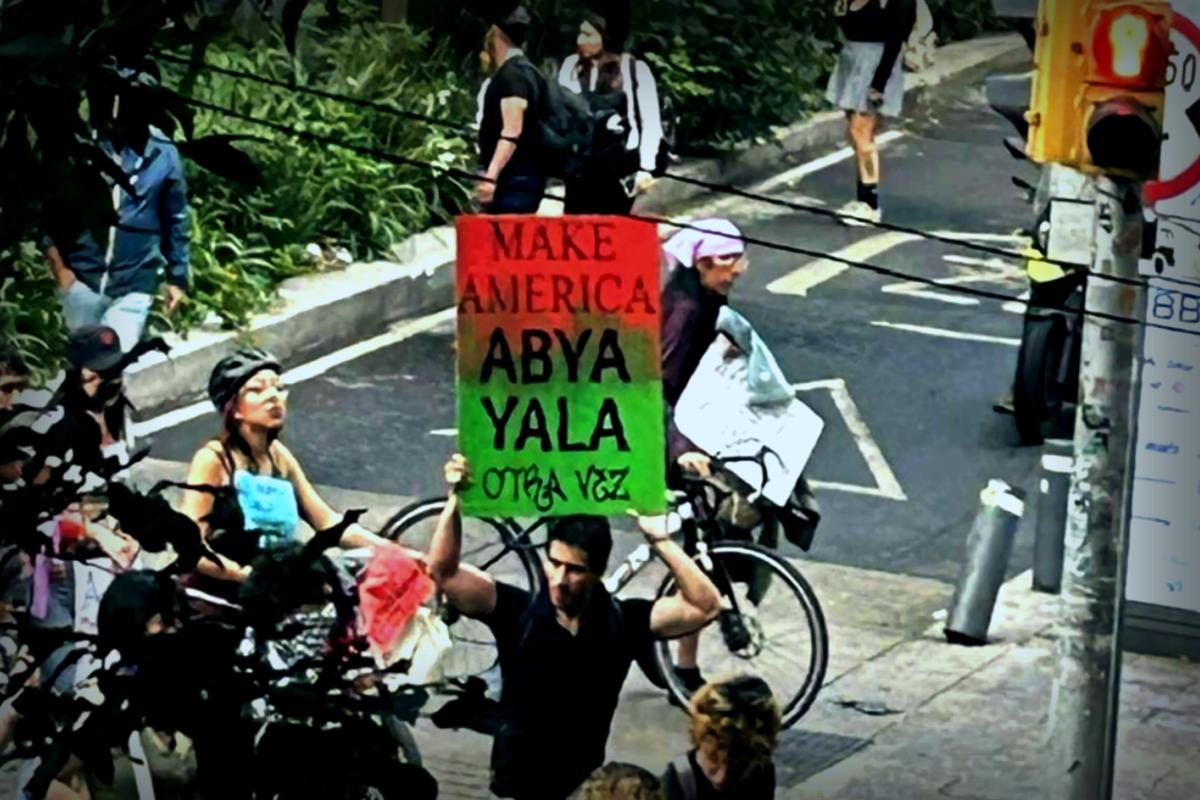- Protests against tourism are rising as more tourists flood back to popular destinations.
- Local residents are transitioning from merely complaining to taking action as overtourism impacts their lives.
- While short-term they may not deter tourists, protests can push governments to address these growing concerns.
Recently, Nan Palmero and his wife attended a rehearsal dinner in the Roma Norte area of Mexico City, not expecting any trouble. But amidst the celebration, they heard unsettling sounds outside.
From their table on the second floor, they watched a substantial crowd march passionately through the streets, some brandishing banners shouting “Gringos, go home!” The scene soon turned chaos: demonstrators vandalized windows of restaurants and damaged vehicles. Palmero estimated the fury even reached the car of their host, a local wedding planner.
He recounted, “They damaged her vehicle pretty badly—smashed a window, pulled off a mirror, even spray-painted it. It was quite alarming.” Although Palmero, hailing from San Antonio, Texas, is an avid traveler, he enjoyed his time in Mexico but was oblivious to these protests until that night, even though similar instances had occurred in European hotspots like Barcelona.
A Growing Wave of Protests
According to Bernadett Papp, a senior researcher at the European Tourism Futures Institute, the frequency and scale of these protests against tourism have surged as locals, who experienced a short respite from tourism during the pandemic, witness their cities teeming with visitors once again.
Residents often opt for protests as a tactic to garner public attention that leads to media coverage, ultimately pressuring government officials to act. Examples abound in places like Barcelona and Amsterdam.

Additionally, many locals feel uncertain on how to voice their frustrations. Papp notes, “The fragmented decision-making in tourism policymaking leaves residents unsure of how to communicate with appropriate officials. Frustration grows when government actions are perceived as stagnant.”
Why Tourists Become the Focus
Residents’ attitudes shift as overtourism becomes increasingly burdensome, explained Tatyana Tsukanova, a researcher and visiting professor at EHL Hospitality Business School. She elaborated, “People might tolerate it initially, voice their concerns, and then engage in confrontations—ultimately resulting in tourists often being seen as the villains in all of this.”

In July 2024, protests erupted in Barcelona, with crowds throwing objects and spraying travelers with water guns and soda. It was an unmistakable message: “Tourists, go home!” As reported, protestors also clashed in various Spanish locales and even in other notable tourist spots like Venice and Lisbon.
Even if tourists are an obvious target, Tsukanova emphasizes that policy oversights are at the heart of the problem.
Using Confrontation to Make a Point
Studies indicate that direct interactions with angry residents can create a disheartening atmosphere for travelers, sometimes resulting in them reconsidering their trip plans. However, Tsukanova pointed out that this impact tends to be temporary. For instance, after protests in Spain, tourist numbers grew by 4.1% in the first seven months of 2025.

These protests can raise awareness about the plight of local residents, prompting travelers to rethink their choices, like opting for local hotels over crowd-heavy short-term rentals. Nonetheless, the long-term effects of such protests are minimal, according to Tsukanova.
Papp remarked that cities responding to protest pressures often implement half-hearted policies that don’t address the concerns meaningfully. She commented, “That type of approach reinforces societal anxieties and nationwide negative views on tourism, creating a vicious cycle.”
Proposing Solutions
Lionel Saul, a visiting lecturer at EHL Hospitality Business School, suggested practical measures to make cities hospitable again. Limiting short-term rentals and imposing hefty taxes on tourists could be potential beginning steps.
Simultaneously, there’s a charge towards “regenerative travel“—a travel approach beneficial to locals rather than one that puts them at a disadvantage. It’s essential for cities to incorporate local communities in tourism plans, he asserted.
Doug Lansky, a seasoned travel writer, expressed his agreement, highlighting that the voices of residents are often overlooked in essential talks, which negatively affects tourist destinations over time. He believes that empowering locals to have a say in conversation and planning could lessen the friction seen in protests.
“If only these residents had representation where their voices are valued, they wouldn’t feel the need to hit the streets in protest,” he said.
Lansky supports a concept of “managed tourism,” proposing timely access to tourist attractions and enforcing limits while still allowing certain short-term rentals to remain accessible.
He acknowledged that while these restrictions might limit spontaneous enjoyment, “This way, it ultimately benefits both visitors and residents.”




















